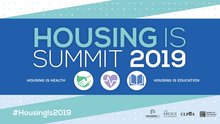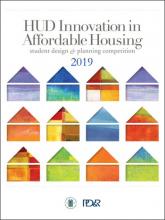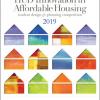0
Publication
Community:
May 2, 2023

The Digital Equity Act (DEA) is a once-in-a-generation opportunity to design systems that will enable true digital equity. Congress and NTIA outlined specifics for states to include in their digital equity plans. The NDIA State Digital Equity Plan Toolkit provides guidance on how to compile the plans. The National Digital Inclusion Alliance (NDIA) team combined our own subject matter expertise, lessons learned from our community of over 1,000 affiliates across the country, and our understanding of the DEA as it appears in the Infrastructure Investment and Jobs Act (IIJA) and Notice of Funding Opportunity into what we hope is a particularly useful toolkit for you, the administering entities, as you embark on this planning process. Through best practices, recommended step-by-step processes, templates, and tools, the Toolkit supports administering entities and your partners in designing robust, comprehensive digital equity plans that lead to impactful digital inclusion programs, policies, and tools.
Authored by: NDIA
Topics: Broadband, Community development, Funding, Legislation & Policy, Low-income, Partnerships
 Shared by Sandra Ware
Shared by Sandra Ware
Sandra Ware posted a
on May 2, 2023
The Digital Equity Act (DEA) is a once-in-a-generation opportunity to design systems that will enable true digital equity. Congress and NTIA outlined specifics for states to include in their digital equity plans.
0
Video
Community:
May 24, 2019
Foundations often play a leadership role in forging innovative cross-sector collaboration. Hear from funders about their philanthropic giving and impact investing strategies aimed at expanding opportunity and improving long-term life outcomes for lower-income individuals and communities.
Authored by: Housing Is, CLPHA
Topics: CLPHA, Funding, Homelessness, Housing, Partnerships
 Shared by Housing Is
Shared by Housing Is
Housing Is posted a
on May 24, 2019
Foundations often play a leadership role in forging innovative cross-sector collaboration. Hear from funders about their philanthropic giving and impact investing strategies aimed at expanding opportunity and improving long-term life outcomes for lower-income individuals and communities.
0
Publication
Community:
Education Leads Home’s State Partnerships on Student Homelessness Project brings together policymakers and practitioners from with the goal of overcoming child and youth homelessness through education. Through the partnership, each state is committed to researching and implementing replicable best practices that address the most urgent needs of their unique homeless student populations. The State Partnerships on Student Homelessness Project is a nonpartisan effort to develop best practices that can be replicated by communities and states nationwide. In its inaugural year of the project, Education Leads Home (ELH) awarded six states – California, Kentucky, Hawaii, Nevada, Oregon, and Washington – small grants through a competitive process. ELH will provide ongoing technical assistance.
Authored by: Education Leads Home
Topics: Child welfare, Education, Funding, Homelessness, Housing, Low-income, Partnerships, Youth
 Shared by Housing Is
Shared by Housing Is
Housing Is posted a
on Mar 5, 2019
Education Leads Home’s State Partnerships on Student Homelessness Project brings together policymakers and practitioners from with the goal of overcoming child and youth homelessness through education.
0
Publication
Community:
Jan 24, 2019
Affordable housing campaigns are not new, of course, but what is unprecedented and transformative about Opportunity Starts at Home is the scope and diversity of the partners that are joining forces to advocate for more robust and equitable federal housing policies. The campaign is advised by a Steering Committee including leading national organizations representing a wide range of interests that are working shoulder-to-shoulder to solve the affordable housing crisis.
Authored by: Opportunity Starts at Home
Topics: Asset building, Child welfare, CLPHA, Community development, Early childhood, Education, Food insecurity, Funding, Health, Homelessness, Housing, Immigrants, Legislation & Policy, Low-income, Mobility, Out-of-school time, Partnerships, Racial inequalities, Safety, Seniors, Stability, Substance abuse, Youth
 Shared by Mica O'Brien
Shared by Mica O'Brien
Mica O'Brien posted a
on Jan 24, 2019
Opportunity Starts at Home
Affordable housing campaigns are not new, of course, but what is unprecedented and transformative about Opportunity Starts at Home is the scope and diversity of the partners that are joining forces to advocate for more robust and equitable federal housing policies.
0
Interactive
Community:
Long-term, sustainable financing is a major challenge for the majority of multisector partnerships, and the organizations aligned with them, in regions across the country. Many depend overwhelmingly on short-term sources of funding—namely, grants. It’s time to explore new financing frontiers!
Authored by: ReThink Health: A Rippel Initiative
Topics: Funding, Partnerships
 Shared by Housing Is
Shared by Housing Is
Housing Is posted a
on Dec 17, 2018
ReThink Health: A Rippel Initiative
Long-term, sustainable financing is a major challenge for the majority of multisector partnerships, and the organizations aligned with them, in regions across the country. Many depend overwhelmingly on short-term sources of funding—namely, grants. It’s time to explore new financing frontiers!
0
Interactive
Community:
HUD’s Office of Policy Development and Research (PD&R) is pleased to announce the 2019 Innovation in Affordable Housing (IAH) Student Design and Planning Competition. The competition encourages multidisciplinary graduate student teams to submit innovative solutions for a real-world affordable housing project that incorporate design, planning, finance, and larger community elements.
Authored by: PD&R Edge Online Magazine
Topics: Funding, Housing, Low-income, Partnerships, Research
 Shared by Mica O'Brien
Shared by Mica O'Brien
Mica O'Brien posted a
on Oct 10, 2018
PD&R Edge Online Magazine
HUD’s Office of Policy Development and Research (PD&R) is pleased to announce the 2019 Innovation in Affordable Housing (IAH) Student Design and Planning Competition.
0
Publication
Community:
Aug 9, 2018
Systems for Action (S4A) is a national program of the Robert Wood Johnson Foundation (RWJF) that aims to discover and apply new evidence about ways of aligning the delivery and financing systems for medical, social, and public health services that support a Culture of Health. This program, as well as RWJF’s other three signature research programs, Evidence for Action, Policies for Action, and Health Data for Action (launching April 19, 2017), are investigating the impact of different types of programs, policies, and health-related systems on health, equity and well-being.
Authored by:
Topics: Funding, Health, Housing, Partnerships, Research
 Shared by Housing Is
Shared by Housing Is
Housing Is posted a
on Aug 9, 2018
Systems for Action (S4A) is a national program of the Robert Wood Johnson Foundation (RWJF) that aims to discover and apply new evidence about ways of aligning the delivery and financing systems for medical, social, and public health services that support a Culture of Health.
0
Publication
Community:
Jul 27, 2018
On January 1, 2014, in states that have chosen to expand Medicaid eligibility under the Affordable Care Act, nearly all chronically homeless people who lacked health insurance became eligible for Medicaid. This Primer offers state Medicaid officials and other interested parties strategies for using Medicaid to meet the needs of this very vulnerable population--some strategies that have succeeded in the past and some that are emerging under provisions of the Affordable Care Act.
Authored by:
Topics: Affordable Care Act, Criminal justice, Disabilities, Dual-eligibles, Funding, Health, Homelessness, Housing, Low-income, Medicaid / Medicare, Mental health, Partnerships, Stability, Substance abuse, Supportive housing
 Shared by Housing Is
Shared by Housing Is
Housing Is posted a
on Jul 27, 2018
On January 1, 2014, in states that have chosen to expand Medicaid eligibility under the Affordable Care Act, nearly all chronically homeless people who lacked health insurance became eligible for Medicaid.
0
Publication
Community:
Jul 24, 2018
The community development “industry”—a network of nonprofit service providers, real estate developers, financial institutions, foundations, and government—draws on public subsidies and other financing to transform impoverished neighborhoods into better-functioning communities. Although such activity positively affects the “upstream” causes of poor health, the community development industry rarely collaborates with the health sector or even considers health effects in its work. We propose a four-point plan to help ensure that existing and future collaborations achieve positive outcomes and sustainable progress for residents and investors alike.
Authored by:
Topics: Community development, Food insecurity, Funding, Health, Low-income, Partnerships, Supportive housing, Transportation
 Shared by Housing Is
Shared by Housing Is
Housing Is posted a
on Jul 24, 2018
The community development “industry”—a network of nonprofit service providers, real estate developers, financial institutions, foundations, and government—draws on public subsidies and other financing to transform impoverished neighborhoods into better-functioning communities.
0
Publication
Community:
Jul 23, 2018
Both the Centers for Medicare & Medicaid Services (CMS) and New York State (NYS) have embarked on an ambitious journey to improve outcomes for patients and populations, reward the delivery of high value care by providers, and increase long-term financial sustainability. In this document, New York State presents an approach to maximally align CMS’ payment reform efforts for Medicare to the NYS’ Medicaid Payment Reform Roadmap which has recently been approved by CMS.
Authored by:
Topics: Funding, Low-income, Medicaid / Medicare, Partnerships
 Shared by Housing Is
Shared by Housing Is
Housing Is posted a
on Jul 23, 2018
Both the Centers for Medicare & Medicaid Services (CMS) and New York State (NYS) have embarked on an ambitious journey to improve outcomes for patients and populations, reward the delivery of high value care by providers, and increase long-term financial sustainability.
0
Publication
Community:
Jul 23, 2018
States are realizing the potential benefits associated with integrating medical care and social services, and are beginning to take the first steps toward developing financing and payment models that encourage this connection. This brief, made possible by The Commonwealth Fund, reviews potential financing mechanisms to facilitate integration, with a particular focus on Medicaid. Drawing from interviews with experts across the country, it offers models ranging from one time seed funding for pilot projects to blended or braided financing arrangements that support comprehensive integration. The brief also highlights payment methodologies designed to influence providers to incorporate social services into their care efforts, with a focus on moving away from fee‐for‐service and toward value based payment strategies like global budgets.
Authored by:
Topics: Cost effectiveness, Funding, Health, Medicaid / Medicare, Partnerships, Supportive housing
 Shared by Housing Is
Shared by Housing Is
Housing Is posted a
on Jul 23, 2018
States are realizing the potential benefits associated with integrating medical care and social services, and are beginning to take the first steps toward developing financing and payment models that encourage this connection.
0
Interactive
Community:
Jul 20, 2018
Kaiser Permanente NW Community Benefit intends to award at least $1.5 million in community grants to support organizations that help people with behavioral health challenges to secure and maintain safe, stable housing. A minimum of five grants of up to $325,000 will be awarded for projects lasting 3 ½ years. Projects must include the involvement of peers or community health workers (CHWs) and must involve collaboration between housing providers, health care providers (including behavioral health service providers) and those community organizations employing peers or CHWs.
Authored by:
Topics: Funding, Health, Homelessness, Housing, Mental health, Pacific Northwest, Partnerships, Place-based, Preventative care, Substance abuse
 Shared by Housing Is
Shared by Housing Is
Housing Is posted a
on Jul 20, 2018
Kaiser Permanente NW Community Benefit intends to award at least $1.5 million in community grants to support organizations that help people with behavioral health challenges to secure and maintain safe, stable housing.
0
Publication
Community:
Jul 20, 2018
The involvement of public-private partnerships in housing programs has grown steadily since HUD’s formation in 1965. Depending on their goals, previous administrations have framed P3s as a means of either expanding or reducing the federal government’s role in housing and urban development.
Authored by:
Topics: Community development, Funding, Legislation & Policy, Partnerships, Research
 Shared by Housing Is
Shared by Housing Is
Housing Is posted a
on Jul 20, 2018
The involvement of public-private partnerships in housing programs has grown steadily since HUD’s formation in 1965. Depending on their goals, previous administrations have framed P3s as a means of either expanding or reducing the federal government’s role in housing and urban development.
0
Publication
Community:
Jul 19, 2018
Assisting public housing residents on the path towards self-sufficiency requires going beyond providing decent, safe, and affordable housing. Public housing residents may face barriers to employment, such as limited education, job skills and/or proficiency in the English language. This toolkit is a resource for both frontline staff and management. It offers examples of how partnerships between DOL and HUD can increase public housing resident employment and create mutual benefit for both agencies.
Authored by:
Topics: Criminal justice, Disabilities, Funding, Housing, Legislation & Policy, Low-income, MTW, Partnerships, Workforce development
 Shared by Housing Is
Shared by Housing Is
Housing Is posted a
on Jul 19, 2018
Assisting public housing residents on the path towards self-sufficiency requires going beyond providing decent, safe, and affordable housing. Public housing residents may face barriers to employment, such as limited education, job skills and/or proficiency in the English language.
0
Publication
Community:
Jul 13, 2018
This guide is organized around five steps, each of which includes concrete ways to get started as well as links to additional resources. These five steps will help you build a case for why and how Medicaid can be structured at the state and local levels to pay for services in permanent supportive housing. When building a case you need to know some basics of Medicaid and the types of services you want Medicaid to cover. in order to convince Medicaid administrators and other health care payers to support your efforts, you need to have evidence of need for and impact of supportive housing and you need a coalition of many stakeholders at your side.
Authored by:
Topics: Affordable Care Act, Data sharing, Funding, Health, Homelessness, Medicaid / Medicare, Partnerships, Supportive housing
 Shared by Housing Is
Shared by Housing Is
Housing Is posted a
on Jul 13, 2018
This guide is organized around five steps, each of which includes concrete ways to get started as well as links to additional resources.
0
Publication
Community:
Jul 13, 2018
Recognizing the layers to developing a health and housing partnership, this Literature Review and Resource Bank is intended to provide background and data resources that can be used in grant applications or in conversations with potential funders in the effort to foster new health and supportive housing partnerships.
Authored by:
Topics: Cost effectiveness, Criminal justice, Data sharing, Dual-eligibles, Funding, Health, Homelessness, Housing, Low-income, Medicaid / Medicare, Mental health, Partnerships, Post-secondary, Preventative care, Research, Seniors, Substance abuse, Supportive housing, Youth
 Shared by Housing Is
Shared by Housing Is
Housing Is posted a
on Jul 13, 2018
Recognizing the layers to developing a health and housing partnership, this Literature Review and Resource Bank is intended to provide background and data resources that can be used in grant applications or in conversations with potential funders in the effort to foster new health and supportive hou
0
Publication
Community:
Jul 12, 2018
This brief aims to bring attention to non-Medicaid funding sources that states could potentially blend or braid to address social determinants of health and other needs that are not typically covered by Medicaid. It is intended to familiarize state Medicaid, public health, and other state policymakers with the funding streams of other agencies, and sketch out a continuum of options to help states coordinate funding to better serve the needs of low-income populations. Because this brief focuses on services for adult Medicaid beneficiaries, it does not address many of the funding sources available for children’s services. However, existing efforts to pool funds for children and youth—notably by the Commonwealth of Virginia—could prove instructive for states seeking to launch such an effort for adults.
Authored by:
Topics: Cost effectiveness, Data sharing, Dual-eligibles, Food insecurity, Funding, Health, Homelessness, Housing, Legislation & Policy, Low-income, Medicaid / Medicare, Mental health, Partnerships, Research, Substance abuse
 Shared by Housing Is
Shared by Housing Is
Housing Is posted a
on Jul 12, 2018
This brief aims to bring attention to non-Medicaid funding sources that states could potentially blend or braid to address social determinants of health and other needs that are not typically covered by Medicaid.
0
Publication
Community:
Jul 12, 2018
This report examines four specific aspects of the challenge before us:
• The need for a much greater supply of homes affordable to our nation’s lowest-income seniors.
• The importance of transforming homes and communities so that seniors can age with options, a desire shared by the overwhelming majority of older adults.
• The imperative to better integrate health care and supportive services with housing, recognizing that this integration has the potential to improve health outcomes for seniors and reduce the costs borne by the health care system.
• The need to deploy technologies on a far wider scale to help all Americans age successfully.
Authored by:
Topics: Cost effectiveness, Funding, Health, Home visiting, Homelessness, Housing, Legislation & Policy, Low-income, Medicaid / Medicare, Partnerships, Place-based, Preventative care, Seniors, Supportive housing
 Shared by Housing Is
Shared by Housing Is
Housing Is posted a
on Jul 12, 2018
This report examines four specific aspects of the challenge before us:
• The need for a much greater supply of homes affordable to our nation’s lowest-income seniors.
• The importance of transforming homes and communities so that seniors can age with options, a desire shared by the overwhelming ma
1
Video
Community:
May 23, 2018
The Council of Large Public Housing Authorities (CLPHA) hosted The Housing Is Summit in Washington, D.C., on May 3-4, 2018 with 300 partners across the housing, education, and healthcare sectors. Access video recordings of the Summit's keynote speakers (HUD Secretary Ben Carson, John Bridgeland, Matthew Morton), plenary panels (on topics that cut across sectors like anchor institutions, data collaboration, stability, and foundation investments), and select breakout sessions focused on the intersections of housing, education, and health.
Authored by: Council of Large Public Housing Authorities
Topics: Affordable Care Act, Attendance, Child welfare, CLPHA, Community development, Data sharing, Dual-eligibles, Dual-generation, Early childhood, Education, Funding, Grade-level proficiency, Health, Healthy homes, Homelessness, Housing, Legislation & Policy, Low-income, Medicaid / Medicare, Mental health, Metrics, MTW, Out-of-school time, Partnerships, Place-based, Preventative care, Racial inequalities, Research, School-readiness, Seniors, Stability, Substance abuse, Supportive housing, Sustainability, TA, Workforce development, Youth
 Shared by Steve Lucas
Shared by Steve Lucas
Steve Lucas posted a
on May 23, 2018
The Council of Large Public Housing Authorities (CLPHA) hosted The Housing Is Summit in Washington, D.C., on May 3-4, 2018 with 200 partners across the housing, education, and healthcare sectors. The Summit highlighted the ways that we can transform systems to better serve low-income people with two days of plenary speakers/panels, breakout sessions, and caucus discussions geared toward intersectional thinking and ways to take action.
Council of Large Public Housing Authorities
The Council of Large Public Housing Authorities (CLPHA) hosted The Housing Is Summit in Washington, D.C., on May 3-4, 2018 with 300 partners across the housing, education, and healthcare sectors.


 Shared by Sandra Ware
on May 2, 2023
Shared by Sandra Ware
on May 2, 2023


 Shared by Housing Is
on May 24, 2019
Shared by Housing Is
on May 24, 2019


 Shared by Housing Is
on Mar 5, 2019
Shared by Housing Is
on Mar 5, 2019

 Shared by Housing Is
on Dec 17, 2018
Shared by Housing Is
on Dec 17, 2018


 Shared by Housing Is
on Aug 9, 2018
Shared by Housing Is
on Aug 9, 2018
 Shared by Housing Is
on Jul 27, 2018
Shared by Housing Is
on Jul 27, 2018
 Shared by Housing Is
on Jul 24, 2018
Shared by Housing Is
on Jul 24, 2018
 Shared by Housing Is
on Jul 23, 2018
Shared by Housing Is
on Jul 23, 2018
 Shared by Housing Is
on Jul 23, 2018
Shared by Housing Is
on Jul 23, 2018
 Shared by Housing Is
on Jul 20, 2018
Shared by Housing Is
on Jul 20, 2018
 Shared by Housing Is
on Jul 20, 2018
Shared by Housing Is
on Jul 20, 2018
 Shared by Housing Is
on Jul 19, 2018
Shared by Housing Is
on Jul 19, 2018
 Shared by Housing Is
on Jul 13, 2018
Shared by Housing Is
on Jul 13, 2018
 Shared by Housing Is
on Jul 13, 2018
Shared by Housing Is
on Jul 13, 2018
 Shared by Housing Is
on Jul 12, 2018
Shared by Housing Is
on Jul 12, 2018
 Shared by Housing Is
on Jul 12, 2018
Shared by Housing Is
on Jul 12, 2018
 Shared by Steve Lucas
on May 23, 2018
Shared by Steve Lucas
on May 23, 2018